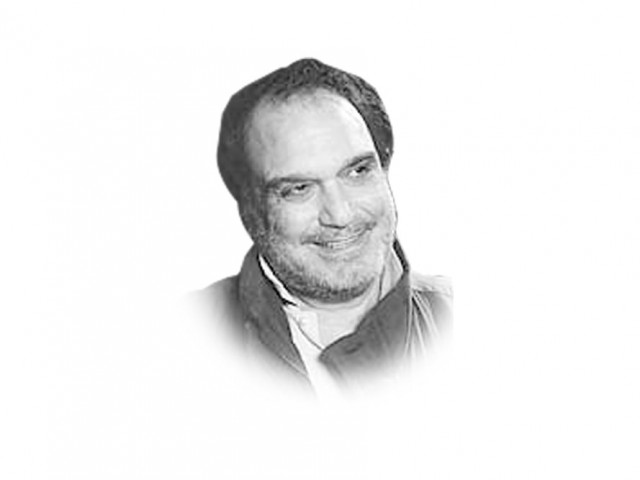Javid Iqbal on Allama Iqbal
Allama Iqbal was right in opposing Hudood, and a courageous son is right in defending his father’s thinking.

Javid Iqbal on Allama Iqbal
In his Khutbaat-e-Iqbal: Tas-heel o Tafheem (Sang-e-Meel 2008) Javid Iqbal has tried to explain to the conservative critics of his father what the Sixth Lecture had really tried to achieve. The crux of the argument was whether the Allama was overstepping the boundaries of “reinterpretation” set by the classical jurists of Islam. The controversial phrasing from the Sixth Lecture was:
The Shariat values (Ahkam) resulting from this application (e.g. rules relating to penalties for crimes) are in a sense specific to that people; and since their observance is not an end in itself they cannot be strictly enforced in the case of future generations”.
The above assertion about Hudood is based on an earlier interpretation of Shah Waliullah by Shibli Numani. This was Iqbal’s deviation from the Muslim consensus on Hudood laws. It was opposed in his time and has been opposed by scholars to this day. General Zia got into trouble with the clergy when the Federal Shariat Court decided that since stoning to death (rijm) was not mentioned in the Quran it could not be a part of Hudood. He had to change the Court to give us “rijm”.
In our day, Zahidur Rashidi, Yusuf Khan Hazab, Burhan Faruqi, and Suheyl Umar, among others, have raised objections. Suheyl Umar questioned the reference made to Shibli and found that Shibli had misinterpreted Shah Waliullah and thus undermined the argument derived by Allama Iqbal to make Hudood changeable. Javid Iqbal thinks otherwise and he is supported by Dr Muhammad Khalid Masood, the outgoing chairman of the Council for Islamic Ideology. Masood thinks that Shah Waliullah was in favour of changeability of Hudood (p.199)
Javid Iqbal refers to additional evidence offered by Khalid Masood that the Hanafis were historically in favour of changing Hudood on the basis of consensus. When Allama Iqbal approached Syed Suleman Nadvi on this issue, Nadvi thought no one believed that Hudood could be changed. Masood thought Nadvi had not read the related Hanafi sources (p.199).
Javid Iqbal has defended his father against the fundamentalist assault witnessed by the end of the 20th century. The ground reality gives the lie to those who want Islamic punishments retained under one pretext or the other. Iran stones people to death under “rijm”, killing mostly women, and it is possible under a draconian system based on coercion. The Taliban promise such a system in Pakistan with the help of our vast madrassa network.
The “real” Hudood, that is, cutting of hands in Sudan has borne no fruit either. A colony of crippled Sudanese men with their hands cut had to be looked after by a German charity. In Kohat, the Taliban similarly crippled two men without due process. Pakistan is still unable officially to cut the hands of its thieves although these punishments have been awarded by the lower courts. It has still to stone its first woman to death.
Allama Iqbal was right in opposing Hudood in his Sixth Lecture. And a courageous Javid Iqbal is right in defending his father’s thinking. A son has paid his debts by producing a scholarly book on this subject.
Published in The Express Tribune, September 26th, 2010.



1729685382-0/Untitled-design-(57)1729685382-0-208x130.webp)










COMMENTS
Comments are moderated and generally will be posted if they are on-topic and not abusive.
For more information, please see our Comments FAQ